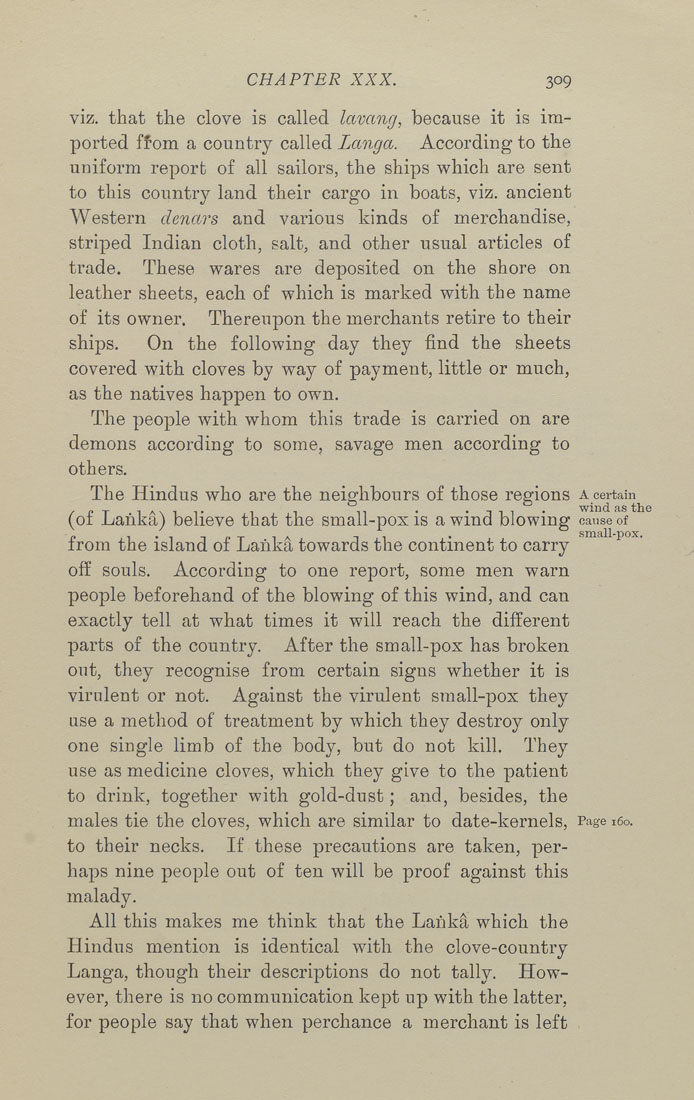Bīrūnī, Muḥammad ibn Aḥmad, Alberuni's India (v. 1)
(London : Kegan Paul, Trench, Trübner & Co., 1910.)
|
||
|
|
|
|
| Page 309 |

CHAPTER XXX. 309 viz. that the clove is called lavang, because it is im¬ ported from a country called Langa. According to the uniform report of all sailors, the ships which are sent to this country land their cargo in boats, viz. ancient Western denars and various kinds of merchandise, striped Indian cloth, salt, and other usual articles of trade. These wares are deposited on the shore on leather sheets, each of which is marked with the name of its owner. Thereupon the merchants retire to their ships. On the following day they find the sheets covered with cloves by way of payment, little or much, as the natives happen to own. The people with whom this trade is carried on are demons according to some, savage men according to others. The Hindus who are the neighbours of those regions a certain /■ !• T lANiT 1 1 n - -nil • wind as the (ot Lahka) believe that the small-pox is a wind blowing cause of „ i-1-if. X1A -II • small-pox. from the island of Lahka towards the continent to carry off souls. According to one report, some men warn people beforehand of the blowing of this wind, and can exactly tell at what times it will reach the different parts of the country. After the small-pox has broken out, they recognise from certain signs whether it is virulent or not. Against the virulent small-pox they use a method of treatment by which they destroy only one single limb of the body, but do not kill. They use as medicine cloves, which they give to the patient to drink, together with gold-dust; and, besides, the males tie the cloves, which are similar to date-kernels. Page 160. to their necks. If these precautions are taken, per¬ haps nine people out of ten will be proof against this malady. All this makes me think that the Lahka which the Hindus mention is identical with the clove-country Langa, though their descriptions do not tally. How¬ ever, there is no communication kept up with the latter, for people say that when perchance a merchant is left |
| Page 309 |







